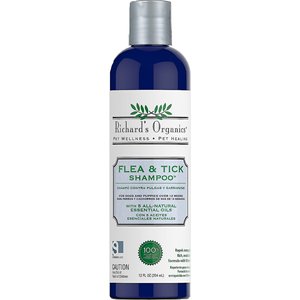Fleas and ticks are pests that feed on your pet’s blood. They are tiny parasites that have been around for ages and can cause serious health problems in both humans and animals, ranging from minor allergic reactions to life-threatening illnesses. Pet owners know that fleas and ticks are a hassle to eliminate and can make life very uncomfortable for you and your pet. Therefore, staying well-informed on the topic can help better equip you to keep these nasty bugs in line and ensure the safety of you and your family members, both human and furry.
Although the problems that fleas and ticks cause are common topics amongst animal lovers, there are many misconceptions regarding the facts that, if left unclarified, can lead to some big problems. We’ve gathered a list of common flea and tick myths and dug up the truths behind them to help set the record straight and demystify these troublesome creatures.
MYTH: Fleas and ticks are a warm-weather problem and don’t need to be worried about in the winter.
TRUTH: Mild winters can result in large flea and tick infestations. Fleas and ticks survive cold weather by living in underground burrows, in sheds, in houses, under decks and around the foundations of our homes. According to Dr. Rachel Barrack, licensed veterinarian of Animal Acupuncture in New York City, “Fleas are a year-round problem. Although extended freezing temperatures can kill [them], they [find] ways to survive in cold weather, [so] year-round [tick and flea treatment] is advisable.” For a long-lasting solution to help fight fleas and ticks on dogs, try the Seresto 8 Month Flea & Tick Collar for Small Dogs & Puppies to repel and kill these bugs. This tick and flea collar is a non-greasy and odorless option that helps control and repel parasites by providing your pet with continuous protection indoors and out.
MYTH: Ticks fall out of trees and onto pets and people.
TRUTH: The thought of ticks falling from treetops onto unsuspecting victims below is an image that has been engraved into many people’s minds. In reality, ticks do not fly, hop, run or jump. “Depending on the type of tick and their life stage, ticks reside [on] ground level and will crawl to find a host,” says Barrack. Ticks enjoy damp and shaded places and can reside in tall grasses as well as in our homes. The tricky part is, once they find their way in, they can reside in a host indefinitely, posing a threat to humans and animals alike.
MYTH: All fleas and ticks are diseased.
TRUTH: Although not all fleas and ticks are infected, “Ticks transmit a variety of diseases that can cause anemia, fever, lameness and paralysis amongst other symptoms,” says Barrack. And although “people cannot get infected from [their] pets … the same ticks that cause disease in animals can cause illness [by biting] people.” Foreseeing the type and severity of a person’s or pet’s reaction to a tick or flea bite is impossible, so protecting our human and furry families from these parasites is critical in ensuring the safety and well-being of all. For a simple and easy way to wash worry away, try Adams Plus Flea & Tick Shampoo with Precor to fight off pesky predators. Made with enriched oatmeal, coconut extract, lanolin and aloe, this dog and cat flea and tick treatment kills adult fleas, flea eggs, ticks and lice on contact, leaving your pet’s coat shiny, clean and bug-free.
MYTH: Cats or city/indoor pets do not need flea and tick prevention.
TRUTH: Fleas and ticks are not fond of extreme dry or cool areas and will hitch a ride on pets, people and even mice or rats to find their way into homes if the conditions are to their liking. By latching onto our pets, fleas and ticks have access to an endless food source in a comfortable environment where they can reside and reproduce. Thus, even indoor animals should be treated to prevent exposure to flea bites on cats and dogs. For fast-acting, long-lasting treatment and control, try Frontline Plus Flea & Tick Treatment for Cats & Kittens to kill adult fleas, ticks, chewing lice, flea eggs and larvae and help prevent fleas on cats or kittens. With two powerful ingredients, this topical treatment provides waterproof effectiveness to kill parasites all month long.
MYTH: My pet is healthy, so once fleas and ticks are no longer visible, treatment isn’t necessary.
TRUTH: Our pet’s first line of defense against bugs is proper health, as healthy pets are less desirable to fleas and ticks. But this does not guarantee that our furry best friends are not susceptible to exposure and harm. “Fleas and ticks are tiny and can be especially difficult to spot in long-haired pets. They are often licked and subsequently ingested, making them harder to see,” says Barrack. “Fleas can also be hidden throughout the house, in carpets or between floorboards, [so] year-round treatment is recommended.” Keep in mind that all household animals should be treated, as pets can transmit parasites to one another, providing an opportune and endless source for reinfestation and never-ending risk of exposure to all.
MYTH: Natural flea and tick products don’t work.
TRUTH: When searching for flea and tick preventatives that consist of natural ingredients to ward off parasites, many pet owners arrive at the dilemma of whether naturally based products are as effective as their competitors. In actuality, natural alternatives can be very effective in warding off bugs. If you want to find a natural option, try Richard’s Organics Flea & Tick Shampoo to kill fleas and ticks and repel mosquitos for up to 4 weeks without the use of harsh chemicals. It’s made with 100% naturally derived ingredients such as cedarwood oil that’s good for your pet’s skin and coat, and no artificial colors or fragrances, so you can rest easy knowing that your family is protected. For an added line of defense, try coupling a tick and flea spray with the shampoo.
If you have questions regarding fleas and ticks or are dealing with an active or recurring infestation, be sure to contact your veterinarian for professional advice on how to treat the problem. Remember, these tiny pests can be a hazard to you, your family and your pets. In addition to vaccinating against these tiny parasites, proper prevention is necessary to ensure the health and safety of all.
Share:













